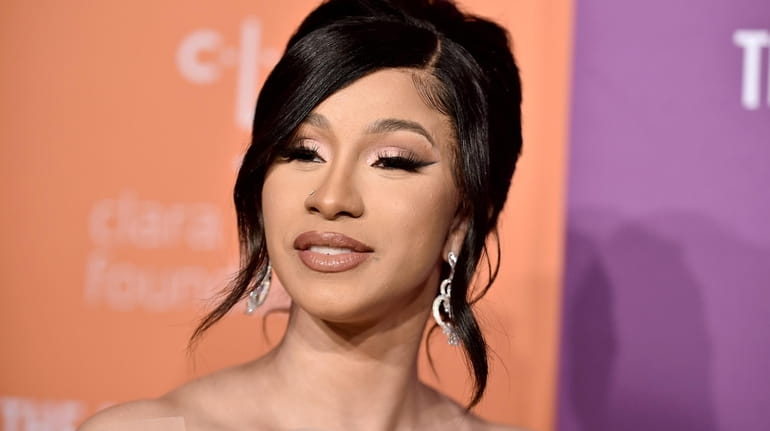Battle against counterculture messaging

Cardi B on September 12, 2019 in New York City. Cardi B's ubiquitous use of the "N-word" in her songs, and in the songs of other talented hip-hop artists, is something parents should worry about. Credit: Getty Images/Steven Ferdman
There were two shows my brothers and sisters and I weren’t allowed to watch growing up. One was "M*A*S*H." The other was "Room 222," a "progressive" ABC high school sitcom that aired on Friday nights following "The Partridge Family" from 1969 to 1974.
The edict came from my father, which was curious. He wasn’t one to lay down the law on seemingly trivial things, but these two programs were strictly verboten. (He later relented on "M*A*S*H," and we all watched it together.)
To my father, I presume, "Room 222" was early Hollywood political indoctrination disguised as teenage entertainment. His was a small defensive measure to safeguard the values he wanted us to have from rapidly deteriorating cultural standards, as he saw it.
For mothers and fathers today who care about the media their children consume — who want them to learn traditional values — it’s a near-impossible battle. Political and countercultural messaging is woven into pretty much everything they watch.
But nowhere is that messaging more directly hazardous, we just learned, than in the cross-pollination of some adult hip-hop music with popular teenage social media apps. Young girls now routinely sing along (and record) on TikTok, for example, to vulgar hit songs like Cardi B’s "WAP" and think nothing of it (the lyrics are literally unprintable.)
But while WAP’s over-the-top sexual lyrics are concerning from a decency standpoint, it’s Cardi B’s ubiquitous use of the "N-word" in her songs, and in the songs of other talented hip-hop artists, that parents should really worry about. It can literally destroy a child’s future today.
This week we learned of a Tennessee student, who, as a 15-year-old, sent around a video to classmates announcing that she had gotten her learner’s permit. "I can drive, [N-word]!," she said with emphasis, apparently mimicking vernacular that she thought was cool at the time. (The "B" word would have sufficed.)
Now, four years later, the unearthing of the snippet by a former classmate is threatening the life the young woman worked hard for. She’s been thrown off the University of Tennessee’s competitive cheerleading team, and many are demanding her outright expulsion from the university, despite her issuing profuse apologies for a word she uttered — as a high school freshman.
Her sin is that she’s white, of course. If she were Black or brown, the PC police explain, her use of the word would have been fine, empowering even. She erred by using a Black-only colloquialism, and now she has to pay. Got it?
I’m sorry, but that’s ridiculous.
We live in one country, not separate ones divided by skin color. If there’s a word we want to retire because of the pain it has caused our compatriots, it ought to be retired by everyone of good will. But if the word continues to be used by artists whom young people admire, spare us the outrage when it keeps popping up.
There was a concerted effort by African-American leaders in recent years to address the proliferation of the N-word, and lyrics demeaning women, in the rap and hip-hop music industries. Now would be a good time to reinvigorate that campaign.
Hip-hop is a vibrant American musical genre. Please don’t make me ban it in my house.
William F. B. O’Reilly is a consultant to Republicans.

